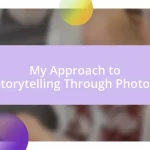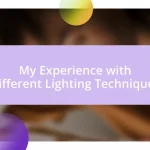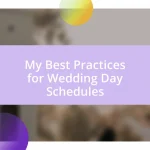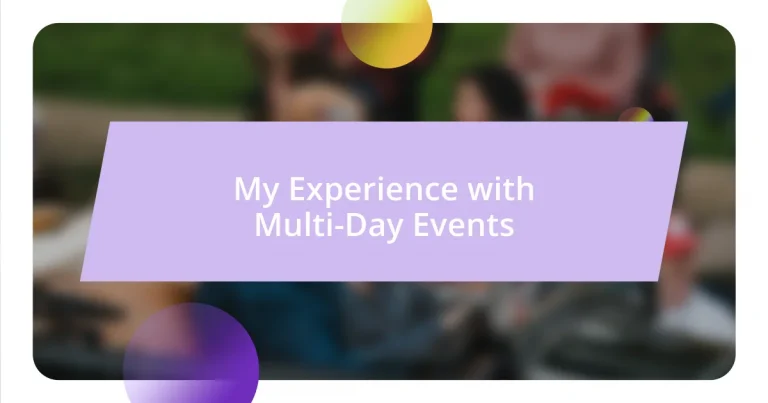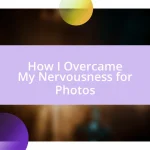Key takeaways:
- Effective preparation, including a detailed itinerary and essential gear, is crucial for enjoying multi-day events without feeling overwhelmed.
- Strategies like creating mini-breaks and staying hydrated help manage energy levels, enhancing the overall experience.
- Networking is significantly improved through genuine curiosity, follow-up after events, and creating spaces for informal interactions.
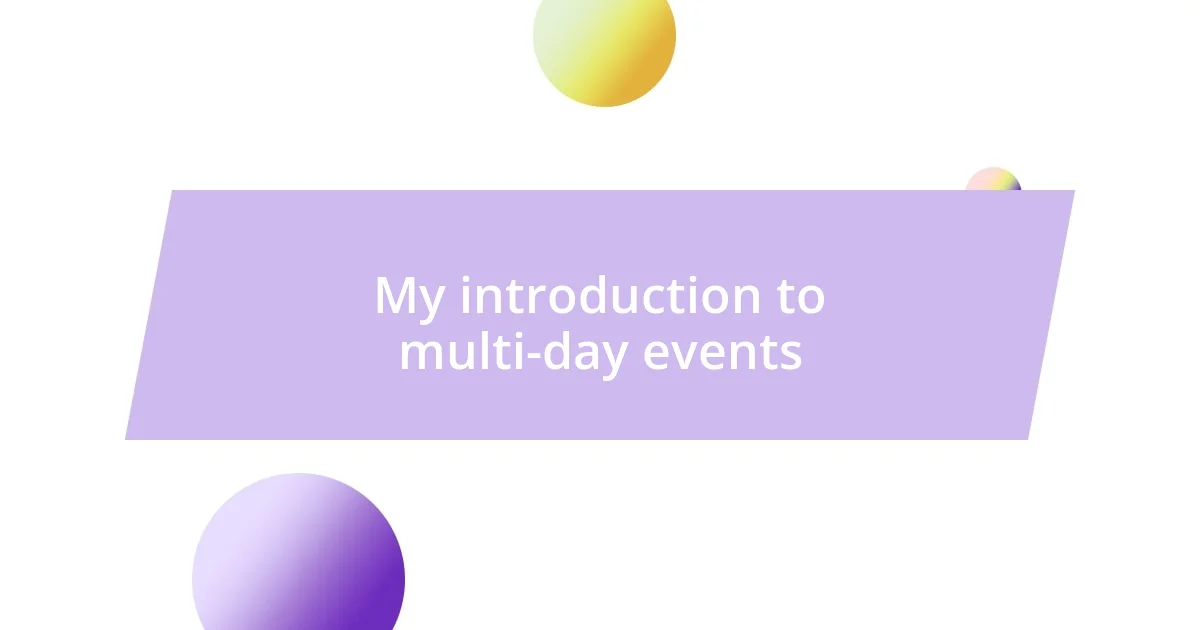
My introduction to multi-day events
My first experience with multi-day events was at a music festival that seemed to stretch endlessly, with performances day and night. I remember feeling an exhilarating mix of excitement and anxiety as I prepared my gear, constantly questioning whether I’d have enough energy to last through the entire weekend. That initial jolt of shared anticipation among attendees created an electric atmosphere that was simply unforgettable.
I distinctly recall the moment I arrived at the festival grounds, the energy of the crowd washing over me like a tidal wave. It was eye-opening to see so many people united by a common passion, and I felt an immediate connection, despite being surrounded by strangers. Have you ever witnessed such collective enthusiasm? It’s a feeling that resonates deeply, highlighting the power of communal experiences.
As the days passed, I navigated everything from late-night conversations with newfound friends to navigating the challenges of sleeping in a tent. Each moment taught me something new about resilience and adaptability. I often found myself reflecting on how these events can bring out the best—and sometimes the worst—in people, but that’s all part of the journey, isn’t it?
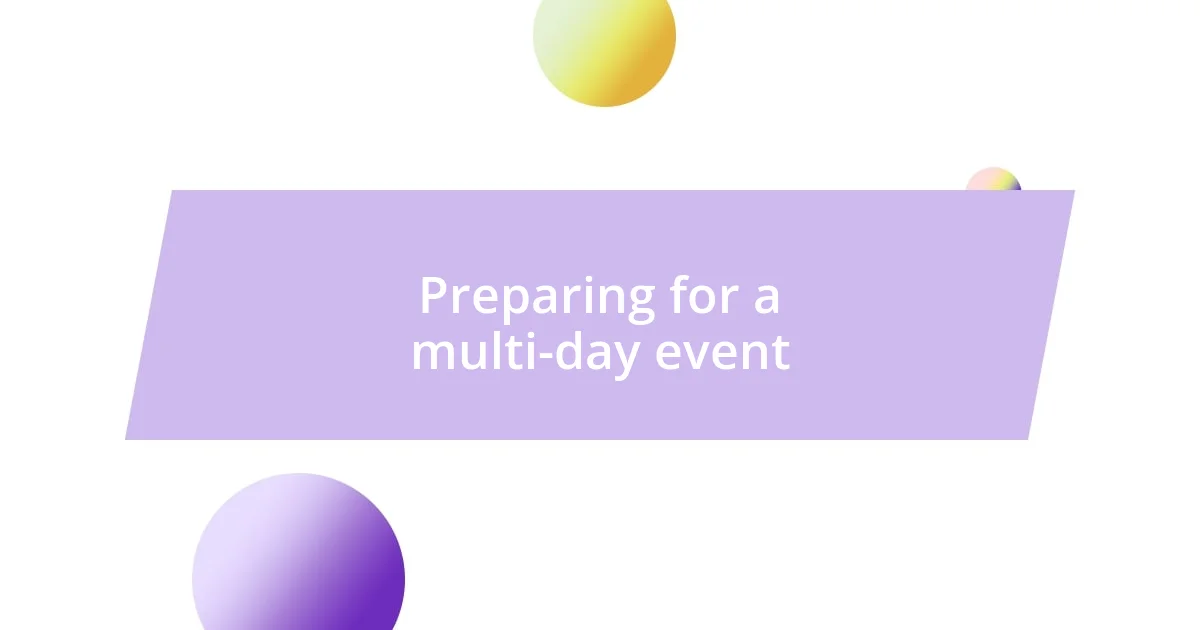
Preparing for a multi-day event
Preparing for a multi-day event requires a thoughtful approach to ensure you enjoy the experience without feeling overwhelmed. From my perspective, meticulous planning is key. I still remember the night before my first festival, anxiously laying out my outfits and gear, ensuring I had everything I needed. It felt like packing for a mini-adventure, and organizing my essentials not only eased my mind but also added to the excitement for what was ahead.
Here’s a list of essentials that helped me navigate my multi-day experience:
- Clothing: Layered outfits for varying weather, plus comfortable shoes for walking.
- Camping Gear: A durable tent, sleeping bag, and sleeping pad for better rest.
- Food & Snacks: Easy-to-carry and nutritious snacks, along with a refillable water bottle to stay hydrated.
- Entertainment: A portable charger to keep my devices powered and a good book for downtime.
- Health Kit: Basic medications, sunscreen, and bug spray to tackle any surprises.
- Personal Items: A small backpack to carry everything on-site, including a lightweight poncho for unexpected rain.
By the time I finally set off, I felt a mix of excitement and readiness; it realized that preparing properly transformed my experience entirely. Embracing the thrill of an upcoming event while being organized made all the difference.
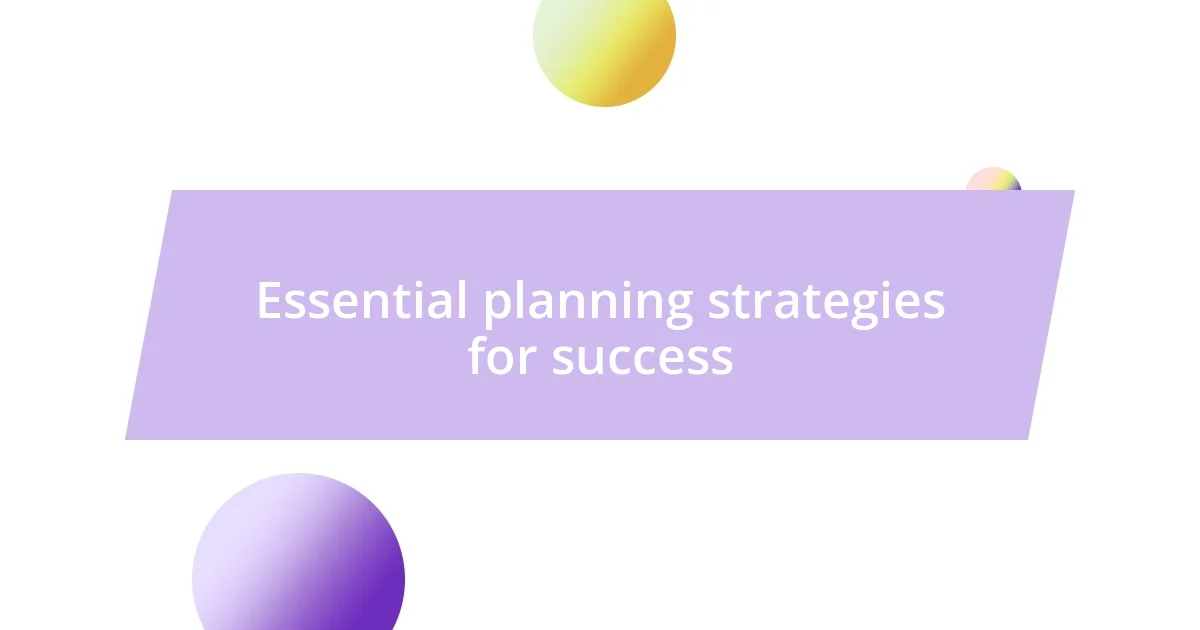
Essential planning strategies for success
Planning a multi-day event involves a blend of organization and intuition. I can’t stress enough the value of creating a detailed itinerary. When I attended a multi-day convention, I made a schedule that outlined not just which sessions to attend but also downtime for meals and socializing. This balance was crucial; it allowed me to immerse myself in the experience without feeling rushed. Have you ever found that the right plan makes the experience flow more smoothly? I sure have.
Communication also plays a critical role in successful planning. I learned this the hard way during my first camping trip at an outdoor festival. I had meticulously packed, but I hadn’t discussed our meeting spots or arrival times with my friends. As a result, we ended up wandering the festival grounds separated and frustrated. By the end of the event, we made a pact to always communicate our plans clearly. It’s a small detail that can save time and stress.
Lastly, flexibility should be part of your strategy. One time, an unexpected change in the weather transformed my festival plans. Instead of sulking, I used the change as an opportunity to explore indoor exhibits and find new friends who had similar interests. Embracing the unexpected can lead to delightful surprises and helps in creating lasting memories.
| Planning Strategy | Description |
|---|---|
| Itinerary | Detail your schedule, balancing sessions and downtime for a smoother experience. |
| Communication | Connect clearly with your group to avoid potential frustrations. |
| Flexibility | Stay adaptable to embrace surprises and create memorable moments. |
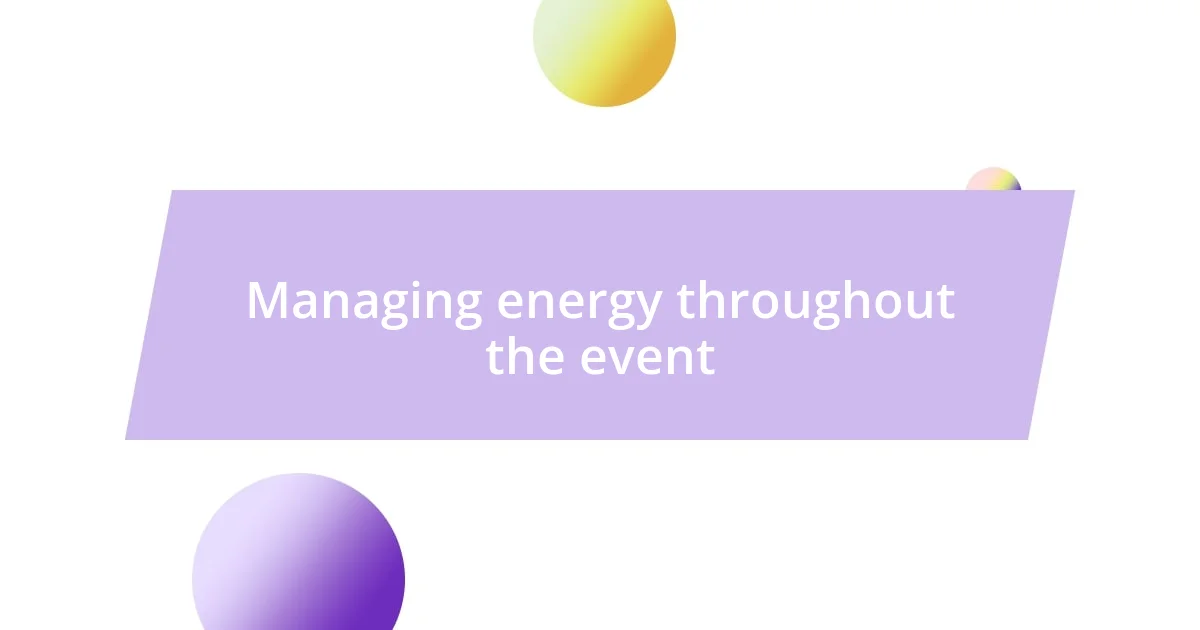
Managing energy throughout the event
Managing energy during a multi-day event is essential for a fulfilling experience. One strategy I found helpful was to create mini-breaks. During one festival, I dedicated time between sessions to unwind and recharge, whether it was finding a quiet spot or enjoying a quick snack. This small shift made a huge difference; I returned to each event feeling refreshed and ready to dive back into the excitement.
It’s also critical to listen to your body. I remember pushing myself too hard during a multi-day conference, thinking I’d miss out if I took a break. However, I quickly realized that my energy tank was running low. Taking a short walk or simply resting for a few minutes allowed me to fully appreciate the sessions I attended afterward. Have you ever ignored your need for downtime only to realize later how it impacted your enjoyment? I certainly have learned to avoid that trap.
Lastly, staying hydrated cannot be overstated. I’ll never forget the time I got caught up in the thrilling atmosphere of an outdoor event, forgetting to drink enough water. The fatigue hit me hard, and it took a toll on my enjoyment. Since then, I’ve made it a point to carry a refillable water bottle wherever I go. It’s a simple yet powerful way to maintain my energy levels and ensure I don’t miss a moment of fun.
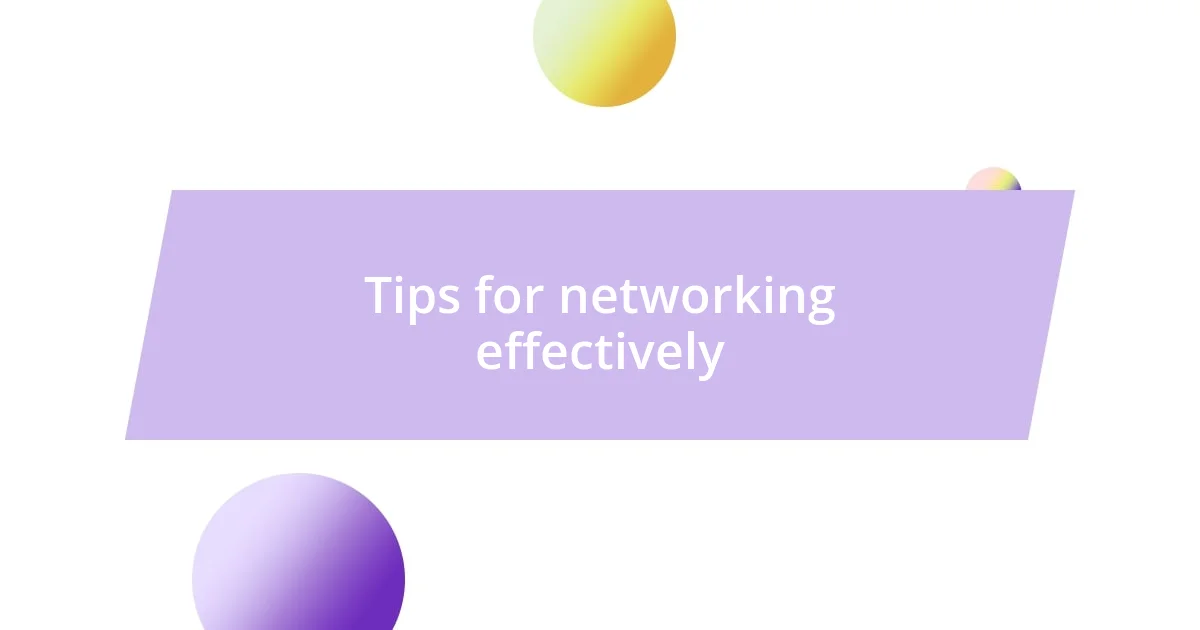
Tips for networking effectively
Networking effectively during multi-day events can truly enhance your experience. I remember attending a large expo where I consciously set a goal to meet at least one new person at each session. This simple mindset shift not only expanded my circle but also deepened my understanding of the topics being discussed. Have you ever noticed how meeting just one new person can open up a wealth of opportunities? It’s like creating a web of connections that supports your journey.
Another tip is to approach networking with a genuine curiosity about others. During a memorable workshop, I made it a point to ask thoughtful questions rather than just introducing myself. Listening attentively to the responses led to engaging conversations that felt much more rewarding. I found that people appreciate when you show real interest in their experiences—it’s a powerful way to connect and establish rapport.
Finally, I learned the value of follow-up after the event. After one convention, I took the time to send quick emails to the contacts I had made, expressing how much I enjoyed meeting them. It was amazing how a simple note turned a fleeting encounter into a lasting connection. Have you considered how a few kind words can turn a brief interaction into a meaningful relationship? I’ve witnessed that a little effort in maintaining these bonds goes a long way in building networks that benefit everyone involved.
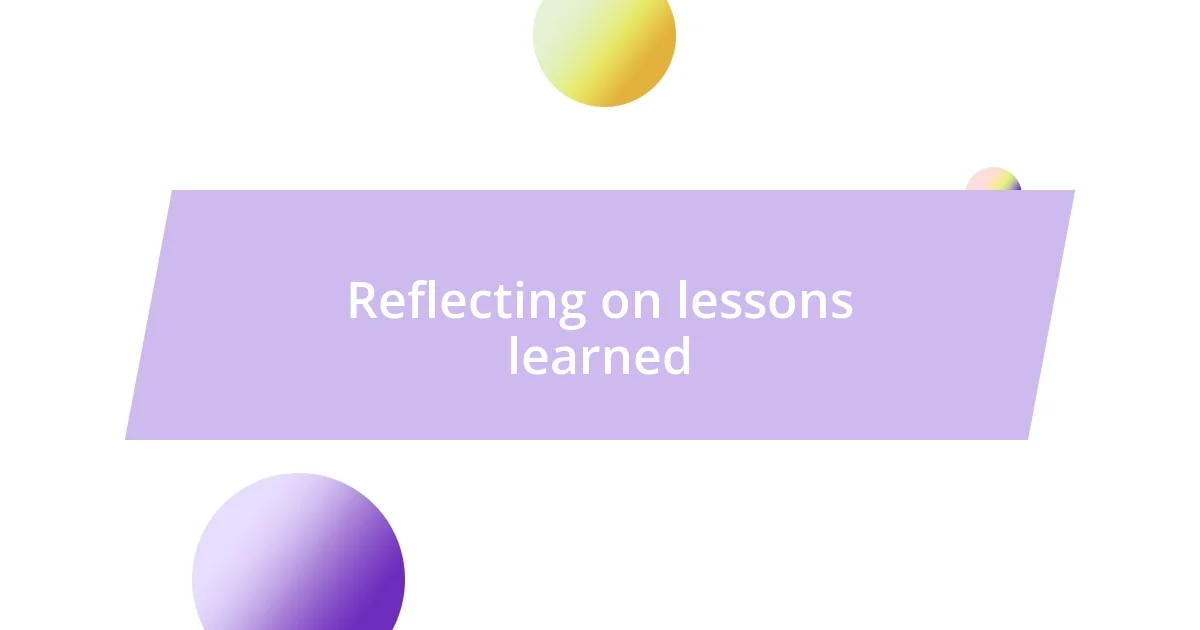
Reflecting on lessons learned
Reflecting on my experiences with multi-day events has illuminated some profound lessons. One standout realization is the importance of prioritizing self-care. During one conference, I found myself overstretched, juggling sessions and socializing. I remember feeling overwhelmed and my focus slipping away as fatigue set in. Now, I make it a point to carve out quality time for myself amidst the chaos. Have you ever tried to do it all, only to end up missing out on key moments? Taking breaks isn’t just about slowing down; it’s about enhancing the overall experience.
Another vital lesson I’ve learned is the power of flexible planning. Once, I meticulously mapped out my itinerary, only to find that some of my anticipated sessions were far less engaging than expected. It was a turning point for me—I discovered the value in leaving room for spontaneity. By letting myself wander to different sessions or networking opportunities as the event unfolded, I cultivated more authentic and enjoyable experiences. Have you ever stuck too rigidly to a plan, missing out on unexpected treasures? Embracing adaptability has truly enriched my event experiences.
Lastly, I can’t stress the significance of reflecting on the insights gained from each event. After attending a particularly eye-opening seminar, I took some time to jot down my thoughts and feelings about what resonated with me. This simple practice transformed those fleeting moments of inspiration into actionable ideas. Have you ever left an event brimming with excitement but later struggled to recall the takeaways? By making a habit of reflection, I’ve managed to weave those lessons into my personal and professional growth.
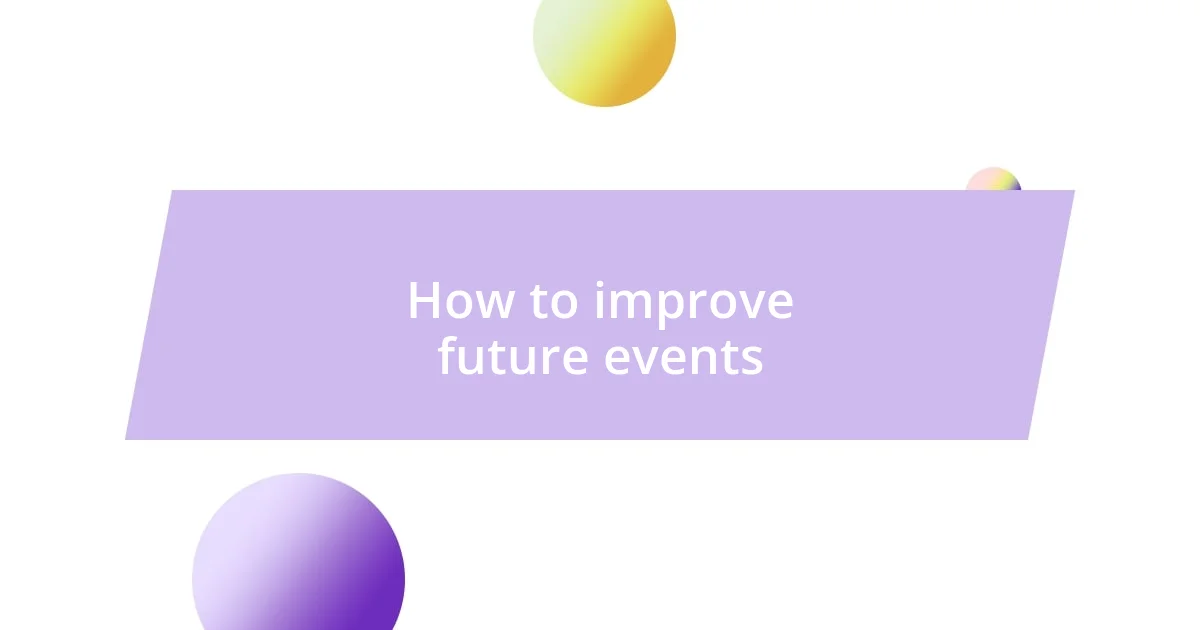
How to improve future events
One effective way to improve future events is by gathering feedback from attendees. After one particularly engaging summit, I created a quick online survey asking participants about their experiences. The honest responses highlighted areas for improvement I hadn’t even considered, such as session timings and networking options. Have you ever thought about how feedback can transform an average event into an extraordinary one?
To make events more inclusive, consider diversifying the formats of sessions. At a festival I attended, they introduced a mix of panel discussions, workshops, and even mindfulness breaks. This variety not only kept the energy levels high but also catered to different learning styles. Isn’t it fascinating how small changes can vastly enhance engagement and make everyone feel involved?
Lastly, I’ve found great value in creating designated spaces for informal interactions. At one conference, they set up cozy lounges equipped with snacks and comfy seating, encouraging spontaneous chats. I remember bonding with a fellow attendee over shared interests that may not have emerged in a formal setting. How often do we overlook the power of casual encounters in fostering deeper connections? These intentional spaces can significantly enrich the overall atmosphere and encourage networking.







